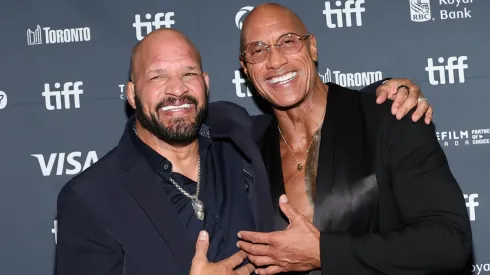The cage of the late 1990s MMA circuit was a place where legends were forged in pure, brutal dominance, and few burned brighter than Mark Kerr, the man aptly nicknamed “The Smashing Machine“. A former wrestling prodigy, Kerr translated his ferocious, clinical strength into a terrifying early run in both the UFC and PRIDE, where his opponents often succumbed in a matter of seconds.
This deeply human struggle, once laid bare in the unflinching 2002 documentary, now finds a visceral, dramatic reinterpretation on the big screen in Benny Safdie’s highly anticipated biopic. Starring a physically transformed Dwayne “The Rock” Johnson, the film delves past the knockouts to focus on the fighter’s descent and his volatile relationship with his partner, Dawn.
The Unflinching True Story of Mark Kerr: His Rise and Fall
Mark Kerr’s ascent in the late 1990s MMA world was a phenomenon of sheer, brutal force. Dubbed “The Smashing Machine”, this former NCAA wrestling champion redefined the sport with his aggressive ground-and-pound style, conquering both the UFC and PRIDE organizations and becoming one of the most feared heavyweights of the era.

Dwayne Johnson as Mark Kerr. (Source: IMDb)
His glory in the ring masked a harrowing private war. The physical toll of constant combat and the relentless pressure to perform drove him into a crippling opioid addiction. Relying on painkillers to recover quickly and sustain his career, he became trapped in a cycle that threatened to destroy his life.
This deeply human tragedy is the core focus of the new A24 biopic, which features an intensely transformed Dwayne Johnson as Kerr. The film zeroes in on the most volatile period of the fighter’s life—his peak dominance, his near-fatal overdose in 1999 and the intense strain it placed on his relationship with his partner, Dawn Staples (played by Emily Blunt). It’s a raw, unflinching look at the cost of being a machine.
The true story of Mark Kerr is not merely one of championship belts and takedowns; it is a profound testament to the ultimate fight for redemption. While his career eventually faded, his legacy endures as a powerful, cautionary tale that exposes the dark side of extreme athletic ambition, where the greatest victory can be the simple, daily act of conquering one’s own demons.





